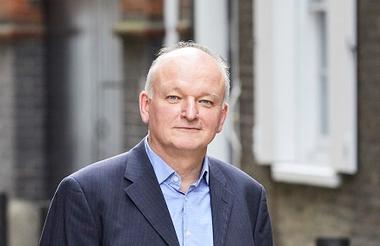Speaking to Charity Finance magazine, Lloyds Bank Foundation for England & Wales chief executive Paul Streets says his organisation’s new five-year strategy aims to put more trust in the hands of the small charities it funds.
Streets says that while grant-makers providing increasingly vital support for charities that have had other avenues of funding cut, he is concerned by some funders’ preference for innovative projects instead of ongoing core costs.
He says: “There is an obsession with ‘projectitis’ and for me it plays to the same problem as commissioning in that basically you are saying we know your business better than you.
“Who am I to talk to a woman who runs a domestic violence service in Blackpool, and say ‘give us some innovation and we’ll fund it’? It feels to me it is really ‘80s thinking.
“We used to be the marzipan on a local authority fruit cake. So maybe we could say we would fund the innovation, because the core stuff was going to be funded by local authorities. But that’s gone.
“How can an organisation exist just on innovation if it can’t pay its chief executive or its rent? Some of the stuff we fund is really unglamorous. But we will fund rent, we will fund the chief exec’s salary because they can’t get money for that kind of stuff anymore.”
Work with the bank
One of the advantages, Streets says, of the organisation’s connection to Lloyds Banks plc is its ability to make use of the company’s financial professionals. This includes a mentoring programme whereby staff from Lloyds Bank plc volunteer their expertise to charities.
But the relationship also works the other way. The Foundation arranges for charity leaders it works with to train the bank’s staff to deal better with its financially vulnerable customers, of whom it has many. An example Streets gives is of women that have been victims of domestic abuse and leave their partner and are then financially destitute.
He says: “We brought seven or eight chief executives who run small domestic violence charities in to talk to the bank team about how they might deal with this better. So we are this wonderful intermediary between a huge plc with 70,000 staff and a massive footprint across the UK and about 750 local organisations.”
Expansion
The Foundation’s new strategy, Reaching Further, gives details about how the organisation plans to work over the next five years.
The strategy commits the Foundation to funding at least 700 organisations at any one time. It pledges to fund these charities for longer (six years wherever possible), with more money (up to £200,000 across the six years), and with fewer restrictions on how the money is spent.
The strategy also says the Foundation will provide extra non-financial support and continue to campaign and influence government policy.
As the Foundation embarks on its new strategy, it is expanding its workforce by about 50 per cent. The organisation will grow from employing about 32 members of staff to just under 50 over the next two years. The Foundation is not moving to bigger offices, however, so is redesigning its current workspace to fit more members of staff.
Streets says it is unlikely any of the new staff will work on the organisation’s primary function of grant-making, as this is already well resourced. Instead the new staff will work on the Foundation’s advocacy and additional support work.
He says: “Our policy work we are going to beef up a bit, because it has worked, so we are going to increase a little bit of that resource. The biggest area of expansion is around our development work, which sits alongside the grant, because that is quite powerful and appears to be of quite high value to the organisations we fund.
“So we are appointing a development director, who comes from a local authority background but has worked with small charities too. Her job will be to come in and think through how we help organisations become more sustainable.”
Subscribers to Charity Finance will be able to read the full interview in the upcoming July issue. Find more information, and subscribe, here.
Related articles











